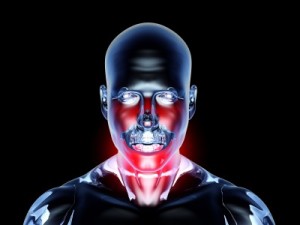 September is Head and Neck Cancer Awareness Month. Did you know that nasopharyngeal cancer (NPC) is the most common type of head and neck cancer in Singapore? It is also the 6th most common cancer in men, affecting 6.4 men per 100,000 population each year and about 1.7 women per 100,000 population each year. It is most common among the Chinese population in Singapore (92% of patients are Chinese), and each year, about 150 people die from NPC.
September is Head and Neck Cancer Awareness Month. Did you know that nasopharyngeal cancer (NPC) is the most common type of head and neck cancer in Singapore? It is also the 6th most common cancer in men, affecting 6.4 men per 100,000 population each year and about 1.7 women per 100,000 population each year. It is most common among the Chinese population in Singapore (92% of patients are Chinese), and each year, about 150 people die from NPC.
Common symptoms
Common symptoms of head and neck cancer include:
- Blood in your saliva
- Lump in the neck caused by a swollen lymph node
- Nasal congestion
- Nose bleeds
- Hearing loss
- Frequent ear infections
- Headaches
Risk factors
Risk factors of nasopharyngeal cancer include:
- Race – more Asians, particularly Chinese people, are affected than other races
- Diet – salt-cured food such as salted fish and preserved vegetables tend to be associated with those who have NPC
- Family history – the chance of developing NPC is higher if a family member has had NPC
- Gender – more men than women have NPC
- Lifestyle – smoking cigarettes and alcohol consumption may also be a factor
The Dental Connection
Oral health is closely connected overall health. In the same way, when a person is diagnosed with NPC, since the head and neck area are closely linked with the mouth and teeth, a multidisciplinary approach is optimal. The head and neck surgeon / ear nose throat (ENT) surgeon works closely with the dental specialist in ensuring that planning for surgery (if required) is done in such a way that the patient can regain as normal a quality of life as possible post-surgery in the areas of speech, chewing and appearance.
In addition to pre-surgical planning and post-surgical rehabilitation, another important consideration is to schedule a dental assessment prior to undergoing cancer treatment (i.e. radiation or chemotherapy) or surgery. Identifying and addressing any outstanding dental issues such as gum diseases and rotten or decayed teeth will assist in minimizing the risk of oral complications during and after treatment.
As there may also be side effects such as dry mouth syndrome (Xerostomia) due to medication, keeping one’s mouth and teeth clean and hydrated is also important in reducing the risk of tooth decay and other oral problems. Find out more about dental care for cancer patients in our previous blog post.





